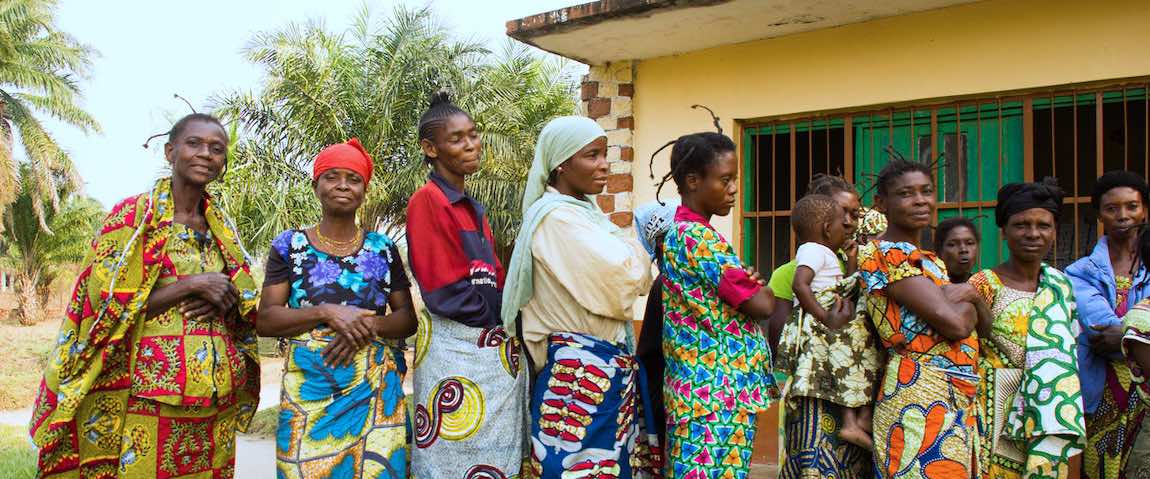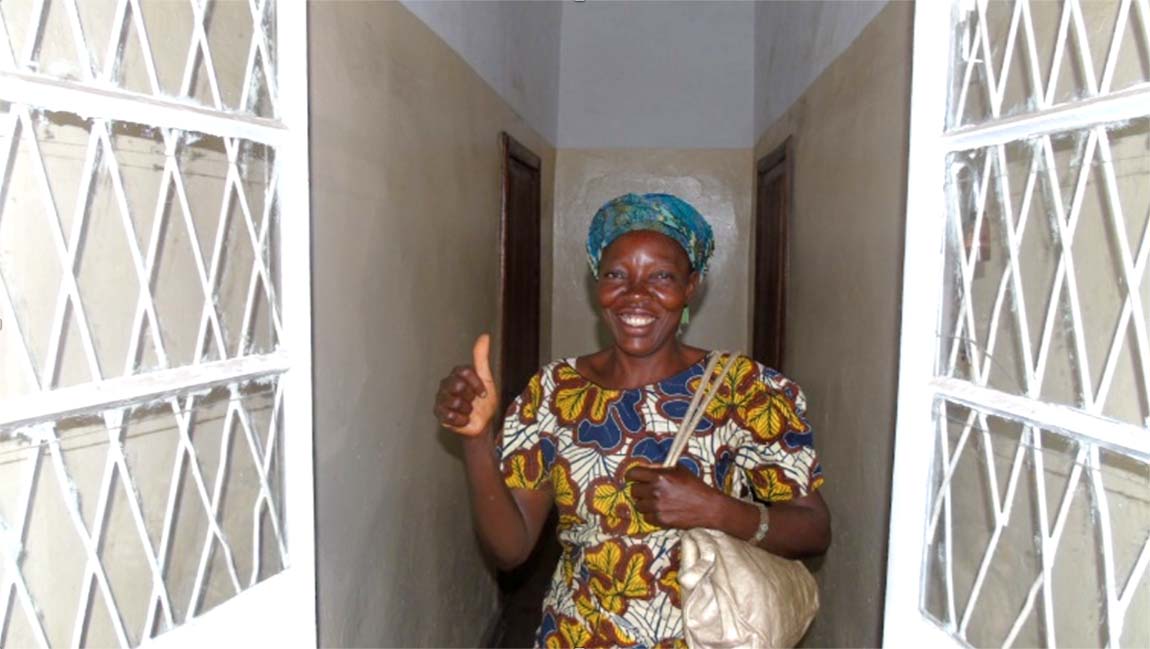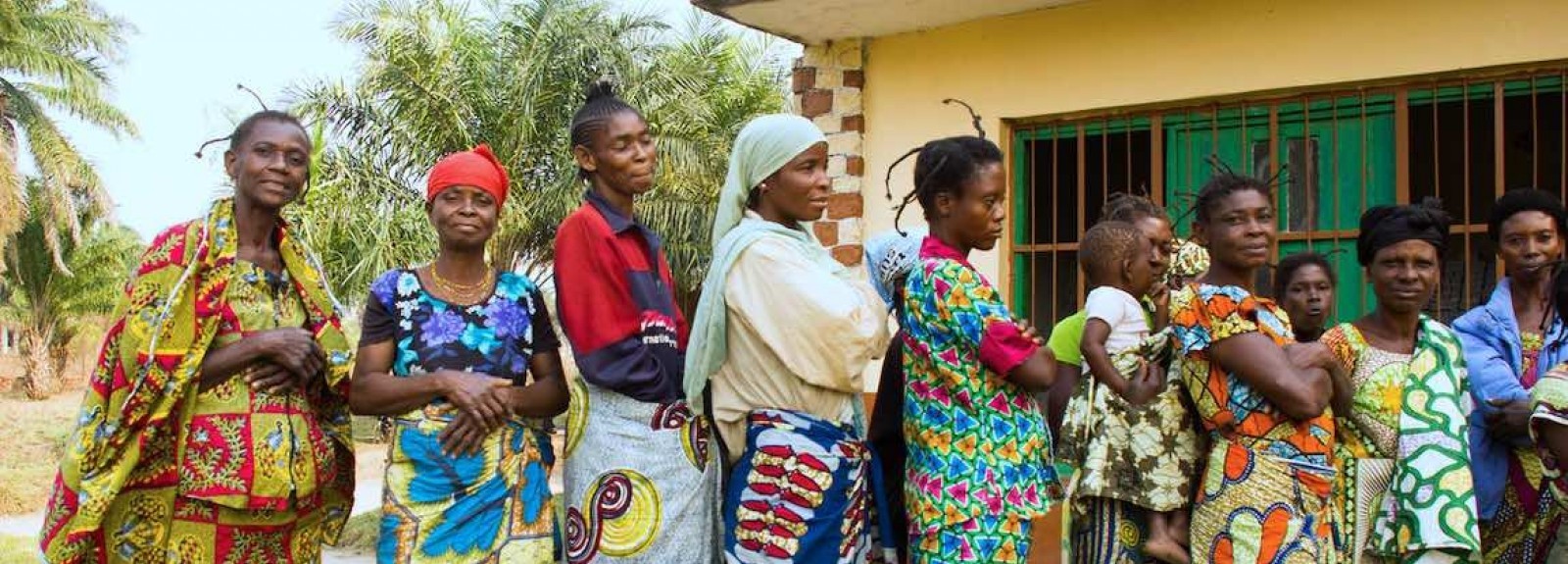
Story by Emily Love Esworthy
IMA World Health and Lutheran World Relief
S
ophie* was deeply embarrassed, even around her own young children. “Mama, what is running down your legs?” they would ask her. Two years before, Sophie suffered from an obstetric fistula, a serious complication from the birth of her sixth child. Since then her urine leaked uncontrollably, and the smell and the shame were difficult to bear.
Even as violence erupted around their village in the Democratic Republic of Congo, Sophie’s friends heard about a fistula repair campaign at their local health center, which remained open and staffed with local health workers despite growing insecurity. The health center was supported by IMA World Health through the Access to Primary Health Care Project, known locally as Accès Aux Soins de Santé Primaires or ASSP. This project aimed to improve maternal and child health in the DRC by strengthening a variety of priority health interventions, primarily in fragile areas prone to violence. One of these was providing training and support for surgical fistula repair for women like Sophie. Her friends urged her to register for the procedure.

Fistula surgery restores health, dignity and social standing for women who have endured serious trauma, whether from a complicated delivery or from sexual violence. With funding from UK Aid’s Department for International Development, ASSP provided fistula repair surgery for 3,418 women, including Sophie, from 2013 to 2019—achieving 190% of its target of 1,800 women. Nearly doubling the number of women who were able to benefit from this life-changing procedure is a significant feat in any developing context. It is especially so in the often-violent environment of DRC.
Conflict and Humanitarian Crisis
In September 2016, the Kamuina Nsapu militia swept through the DRC’s Kasai region where Sophie lives—and where an estimated 67% of ASSP’s target population is located—creating a security and humanitarian crisis. Many health centers in the region were forced to close, and at the height of the violence, up to 3.3 million people were thought to be displaced—more than a third of the total population served by ASSP.
Many of the project’s maternal and child health interventions were health facility-based. Among its other goals, ASSP aimed to increase the number of women who attended antenatal care visits, who received family planning counseling and antimalarial bed nets and who delivered their babies with the help of a trained birthing attendant. Visits to ASSP-supported health facilities typically cost patients 50 cents to $1—a small but important fee that helped to finance health facility operations. But with families fleeing their homes and livelihoods, patients could no longer afford the fees, and some health facilities were unable to pay their staff or keep their doors open.
Strengthening Health Systems During a Crisis
Leveraging lessons learned from years of strengthening health systems in fragile settings, IMA World Health secured funding from the Office of U.S. Foreign Disaster Assistance in 2017 to help ASSP provide free health care in the conflict zone. Instead of using temporary tents and foreign health workers to weather the crisis, ASSP invested in local health workers and reopened existing health facilities. The community response to these free services was robust, and many of ASSP’s indicators rebounded. By the project’s end in April 2019, several maternal and child health indicators—such as fistula repair—met or exceeded targets. Select examples include the following:
- Number and percentage of births attended at a health facility by skilled health personnel: 1,848,043 (101% of target)
- Number and percentage of 1-yr-old children vaccinated against measles: 1,742,466 (100% of target)
- Number and percentage of pregnant women provided with two doses of intermittent presumptive treatment (IPTp) for malaria: 1,603,010 (101% of target)
- Number of children and pregnant women reached with nutritional interventions (e.g. five home visits for children and three doses of iron and folate for pregnant women): 1,433,891 (103% of target)
- Number and percentage of pregnant women and children under one year provided with a long-lasting insecticide-treated bed nets (LLINs): 971,407 (101% of target)
- Number of new acceptors of modern methods of family planning: 1,680,128 (101% of target)
As for Sophie, she is grateful for the care she received at her local health center. “I don’t have anything to give ASSP. I can only pray that God will reward them a hundred times over, and that he grants them a long life on this Earth,” she told IMA staff. Though the indicators show the immense success of the ASSP project, it is hard to measure the true impact of having one’s health and dignity restored.
*Last name withheld

This work is part of the Access to Primary Health Care Project, known locally as Accès aux Soins de Santé Primaires or ASSP. From 2013-2019, the project, funded by the UK’s Department for International Development, supported nearly 9 million people across 52 health zones in five Provincial Health Divisions: Kasai, Kasai Central, Nord-Ubangi, Maniema and Tshopo. In collaboration with the Ministry of Health, IMA worked alongside partners SANRU, Pathfinder, Tulane University, IntraHealth, HISP and BAO Systems to reduce morbidity and mortality in women and children under 5 by strengthening the national health system.

Founded in 1960, IMA World Health is a global, faith-based nonprofit that works with communities to overcome their public health challenges.
WRITE US
IMA World Health
1730 M Street, NW, Suite 1100
Washington, DC 20036
Get directions
EMAIL US
@email
CALL US
202-888-6200


